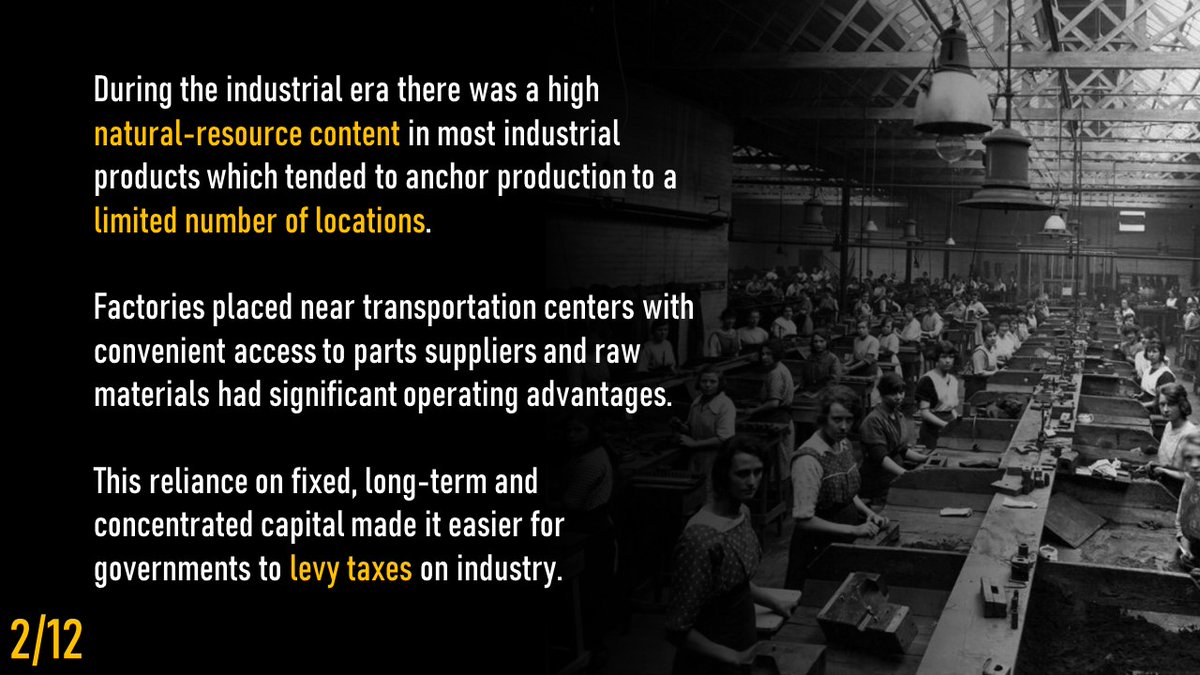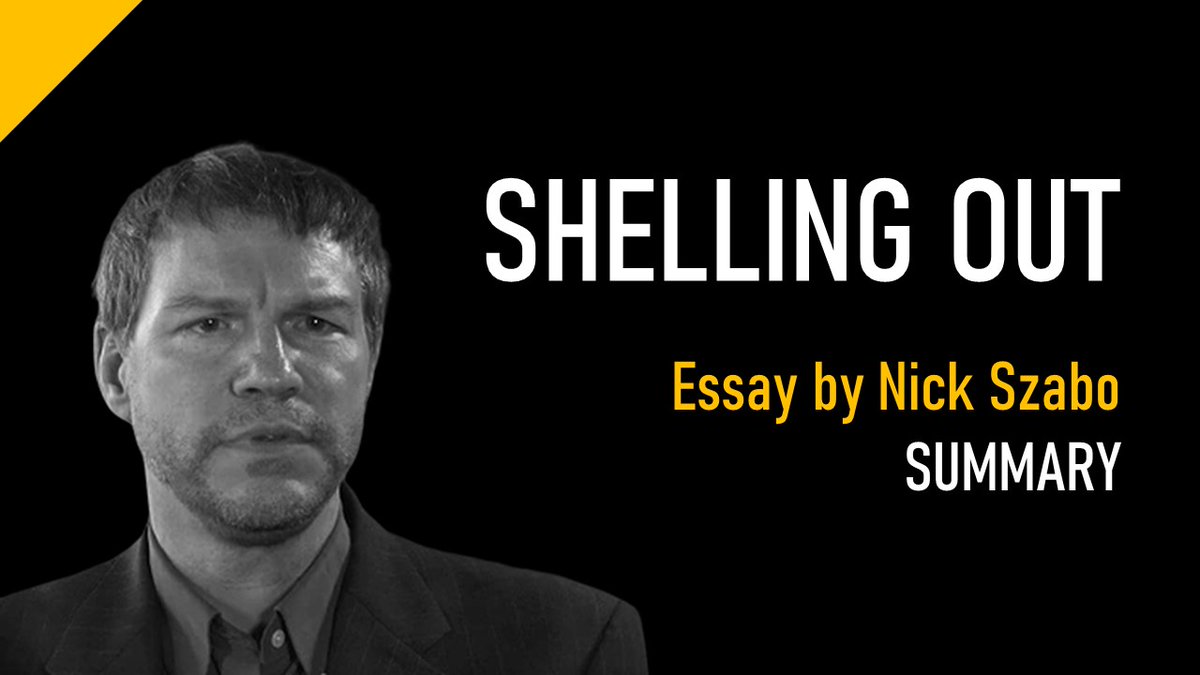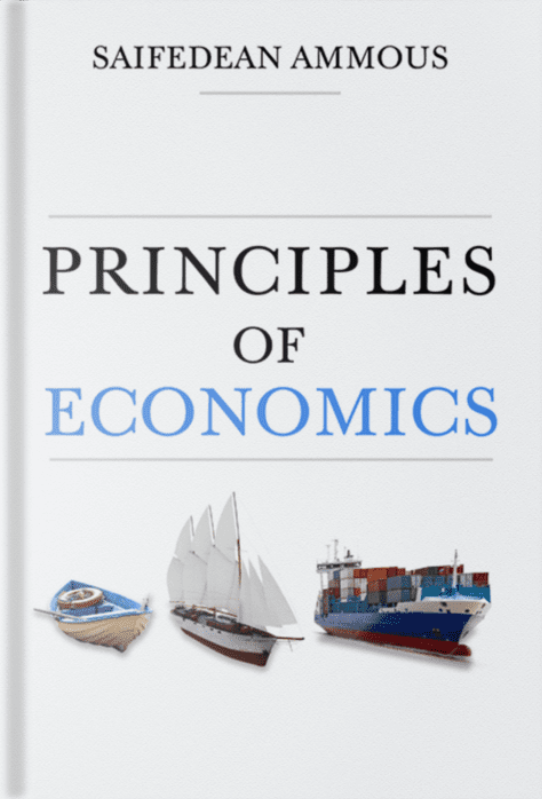
In 2019, I made the decision to radically reduce the number of possessions I own.
Doing so proved to be one of the best decisions of my life.
As we go into 2021, I encourage you to think about how you could live more by owning less.
This 13 tweet thread explains.👇
Doing so proved to be one of the best decisions of my life.
As we go into 2021, I encourage you to think about how you could live more by owning less.
This 13 tweet thread explains.👇
1/ In 2019, I watched this @LondonRealTV interview with @aantonop.
Andreas articulated something that I had long sensed: that many of the physical possessions I owned were hindering me rather than improving my life.
His words prompted me to take action.👇
Andreas articulated something that I had long sensed: that many of the physical possessions I owned were hindering me rather than improving my life.
His words prompted me to take action.👇
2/ Like @aantonop, I was a frequent traveler and had realized that I didn't need or miss the objects I left behind when I was away.
My apartment was unoccupied for several weeks each year.
The space I was renting had become a very expensive storage cabinet.
My apartment was unoccupied for several weeks each year.
The space I was renting had become a very expensive storage cabinet.
3/ Yet I felt I needed to keep it.
There were so many things (books, documents, bulky electronics, toiletries, clothing) that I thought I couldn't do without.
Online minimalists showed me that it was possible to retain the benefits of my possessions while owning fewer of them.
There were so many things (books, documents, bulky electronics, toiletries, clothing) that I thought I couldn't do without.
Online minimalists showed me that it was possible to retain the benefits of my possessions while owning fewer of them.
4/ The thing I felt least able to part with was my book collection.
I read a lot, but my “buy to read ratio” was around 3:1.
Rather than a source of joy, my books had started to feel like a psychological burden: a daily reminder of money spent without yet realizing a return.
I read a lot, but my “buy to read ratio” was around 3:1.
Rather than a source of joy, my books had started to feel like a psychological burden: a daily reminder of money spent without yet realizing a return.

5/ I decided to let go of the “to do” list that my bookshelf had become, selling all but a handful of my books.
I pledged to end the habit of buying in advance and later reading books out of a sense of obligation to my former self.
From then on, I only bought when ready to read
I pledged to end the habit of buying in advance and later reading books out of a sense of obligation to my former self.
From then on, I only bought when ready to read
6/ Instead of relying on physical books I decided to switch to an e-reader.
This allowed me to take my entire book collection with me wherever I went.
The ability to digitally catalogue my book notes also made it easier for me to remember and reference things I'd read.
This allowed me to take my entire book collection with me wherever I went.
The ability to digitally catalogue my book notes also made it easier for me to remember and reference things I'd read.
7/ Thanks to technological progress, so many bulky appliances that were once necessary are now redundant.
Our smartphones and laptops have become our libraries, cinemas, conference suites, filing cabinets and consoles.
As time goes on it is becoming easier for us to own less.
Our smartphones and laptops have become our libraries, cinemas, conference suites, filing cabinets and consoles.
As time goes on it is becoming easier for us to own less.

8/ Yet many of us hold on to redundant things without understanding the financial and psychological cost they impose on us.
When we have less stuff, we get back the time we would have spent tidying, maintaining and being distracted, freeing us to pursue more meaningful goals.
When we have less stuff, we get back the time we would have spent tidying, maintaining and being distracted, freeing us to pursue more meaningful goals.
9/ Living in an uncluttered environment does wonders for our mental clarity.
When we are surrounded by mess we experience sensory overload.
When clutter is removed we see the world more clearly, which allows us to make better decisions about our lives.
When we are surrounded by mess we experience sensory overload.
When clutter is removed we see the world more clearly, which allows us to make better decisions about our lives.
10/ Choosing how much and what to own is a deeply personal decision.
When making it we should not forget that ownership brings with it management and storage costs, as well as the object's benefits.
We should weigh up these pros and cons when we make a new purchase.
When making it we should not forget that ownership brings with it management and storage costs, as well as the object's benefits.
We should weigh up these pros and cons when we make a new purchase.
11/ Whilst this won’t be the right choice for everyone, I have personally opted for a very minimalist lifestyle.
Everything I own now fits into 2 suitcases.👇
It is liberating to know exactly what I own, and that I can take it with me anywhere on a standard commercial flight.
Everything I own now fits into 2 suitcases.👇
It is liberating to know exactly what I own, and that I can take it with me anywhere on a standard commercial flight.

12/ Indeed, earlier this year I was based in China working for a UK company when Coronavirus started to dominate the headlines.
I was required to relocate quickly.
Had I not been a minimalist, this would have been a much more difficult and costly undertaking.
I was required to relocate quickly.
Had I not been a minimalist, this would have been a much more difficult and costly undertaking.

13/ The things we own in life can end up owning us.
As we start a new year I encourage you to think about the relationship you have with your possessions.
It may be that you're able to free up more space for the things you really value by deciding to let go of clutter.
As we start a new year I encourage you to think about the relationship you have with your possessions.
It may be that you're able to free up more space for the things you really value by deciding to let go of clutter.
Thank you for reading.
If you enjoyed this thread please scroll up and retweet the first tweet to help its message reach a wider audience.
For more like this follow me at @TheAustrian3
My collated threads can be accessed on my Medium page: theaustrian3.medium.com
If you enjoyed this thread please scroll up and retweet the first tweet to help its message reach a wider audience.
For more like this follow me at @TheAustrian3
My collated threads can be accessed on my Medium page: theaustrian3.medium.com
RESOURCES
Tweet 1: @aantonop interview with @LondonRealTV:
Tweet 3: mini-documentary by @mattdavella:
Tweet 9 video:
Minimalism: A Documentary About the Important Things:
Tweet 1: @aantonop interview with @LondonRealTV:
Tweet 3: mini-documentary by @mattdavella:
Tweet 9 video:
Minimalism: A Documentary About the Important Things:
• • •
Missing some Tweet in this thread? You can try to
force a refresh












